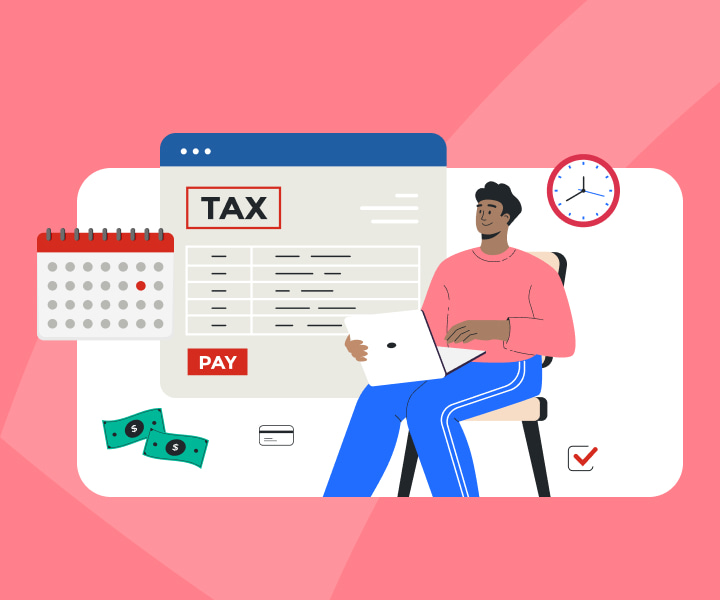Completing Your Return if You Co-Own a Small Business with Your Spouse
TurboTax Canada
November 8, 2023 | 3 Min Read
Updated for tax year 2025

It’s the dream of many Canadians to run their own business and husband-and-wife teams aren’t at all uncommon. When it comes to taxes, how you declare business income has more to do with how your business is set up than your marital status. The most common business structures in Canada are sole proprietorships, partnerships and corporations.
Corporations are, for tax purposes, a separate entity and sole proprietors are, well, sole, so the partnership is the most likely tax situation married small business owners will encounter.
The partnership structure
The Canada Revenue Agency (CRA) considers a partnership to be an association of two or more people cooperating in the operation of a business. Each partner contributes to the business, whether it’s money, labour, property or skills, and each partner shares in the profits or losses of the company.
“There’s no formal arrangement needed to create a partnership,” says London, Ontario, tax preparer Emily O’Neil. “Most partnerships have some sort of written agreement, outlining the responsibilities and share of the business each partner has, but a verbal agreement is adequate, and from what I see, informal, unwritten agreements are more common in spousal partnerships.” The CRA recommends that, when money and property are at stake, a written agreement is a good idea.
Partnerships and taxes
“As far as taxes go, the CRA sees you and your business partner husband as two self-employed people conducting a business,” says O’Neil. “Your marriage comes into play elsewhere on your tax return, but for reporting income and expenses on your share of the partnership, you’re on your own.” The partnership itself doesn’t have a tax responsibility. Each partner, though, does, in the form of financial statements or through CRA forms. These forms include:
- Form T2125, Statement of Business or Professional Activities,
- Form T2042, Statement of Farming Activities,
- Form T2121, Statement of Fishing Activities, and
- Forms T1163, T1164, T1273, or T1274, if theAgriStability and AgriInvest programs are used.
There are situations where partnerships must complete Form T5013, Statement of Partnership Income, but this is for businesses with revenues or expenses and organizational complexity that go beyond small business levels, such as assets of $5 million.
Remember: Your partnership in business has no effect on spousal deductions and tax credits.
Collecting GST/HST
Partnerships are considered as separate persons, as corporations are, when it comes to collection of the goods and services tax and the harmonized sales tax. Businesses that are registered for HST or GST, must collect and remit as per CRA regulations. The rules regarding when you must register depend on your earnings and small supplier status.
Once registered, the partnership receives a business number, rather than the partners themselves, for purposes of a GST/HST account. Once a business is registered, the business can claim a rebate of the GST/HST paid on legitimate partnership business expenses as part of its return filing. As soon as a business registers for an HST/GST account, it must collect and remit each year unless the business or account is closed.
Completing your tax return
Self-employed earnings and expenses are usually declared using Form T2125 for non-agriculture or fishing businesses, particularly for returns filed electronically. This form supports partnership business structure, with declarations of your partnership business number, if any, and your percentage of ownership in the business. Total business revenue, costs and expenses are listed on both your and your spouse’s copy of the T2125, and your respective shares of these are claimed.
“Many couples in business together opt for a 50/50 split,” says O’Neil. “However, if one spouse has a job outside of the partnership, it may be advantageous from a tax perspective to reduce that spouse’s share, since this may also reflect the difference in time invested in the partnership.”
References & Resources
- Canada Revenue Agency: Setting Up Your Business
- Canada Revenue Agency: Partnership
- Emily O’Neil, Tax Preparer; London, Ontario
- Canada Revenue Agency: General Information for GST/HST Registrants
No matter your tax situation, we’ve got you covered.
Related articles

© 1997-2024 Intuit, Inc. All rights reserved. Intuit, QuickBooks, QB, TurboTax, Profile, and Mint are registered trademarks of Intuit Inc. Terms and conditions, features, support, pricing, and service options subject to change without notice.
Copyright © Intuit Canada ULC, 2024. All rights reserved.
The views expressed on this site are intended to provide generalized financial information designed to educate a broad segment of the public; it does not give personalized tax, investment, legal, or other business and professional advice. Before taking any action, you should always seek the assistance of a professional who knows your particular situation for advice on taxes, your investments, the law, or any other business and professional matters that affect you and/or your business.









